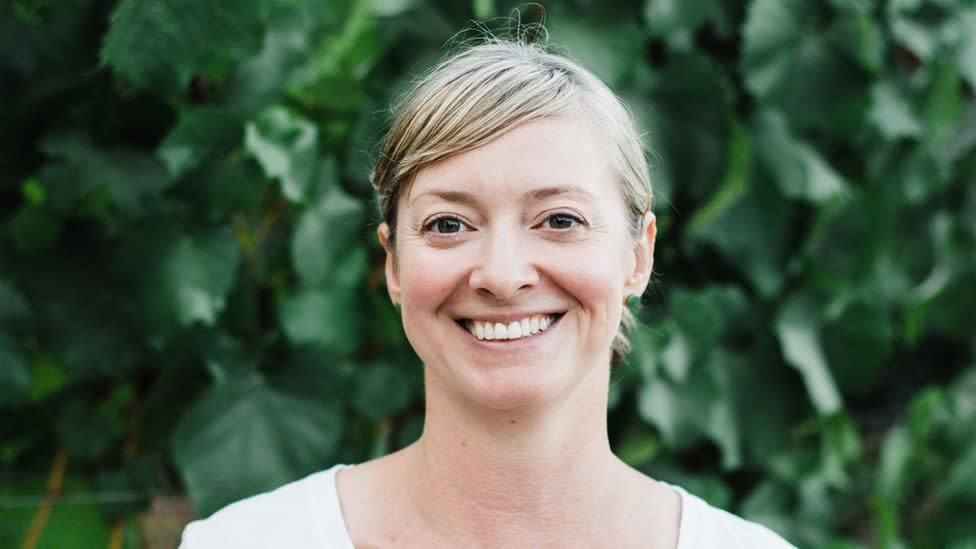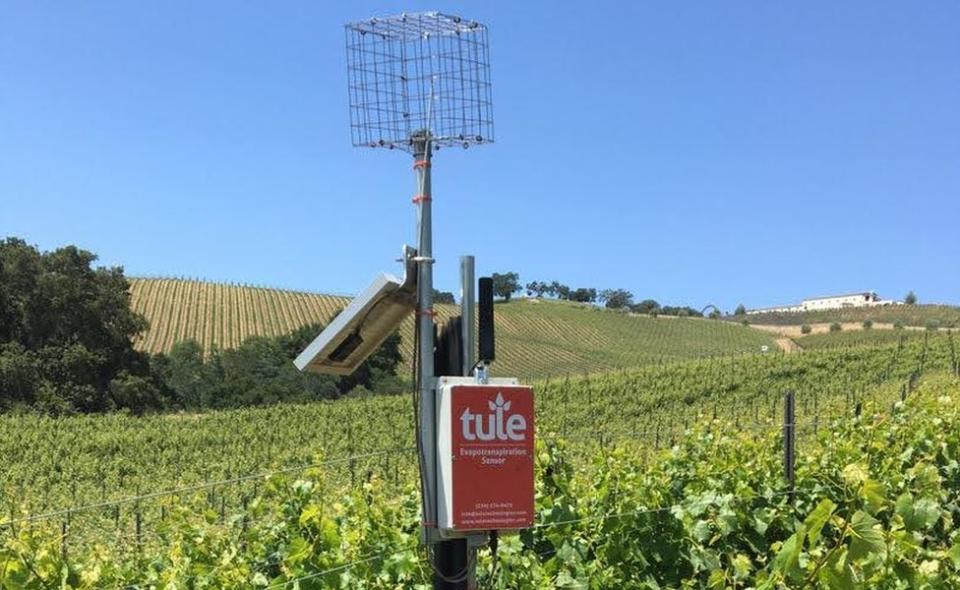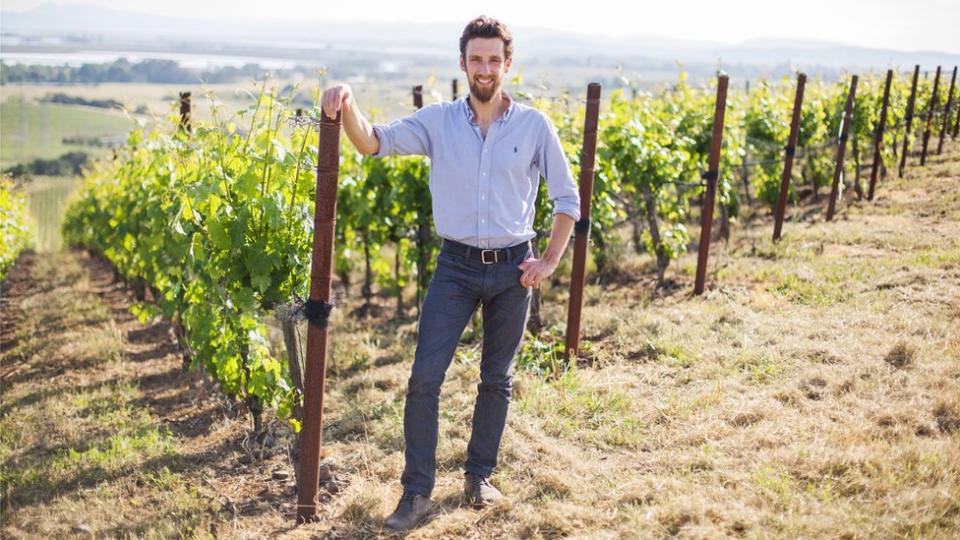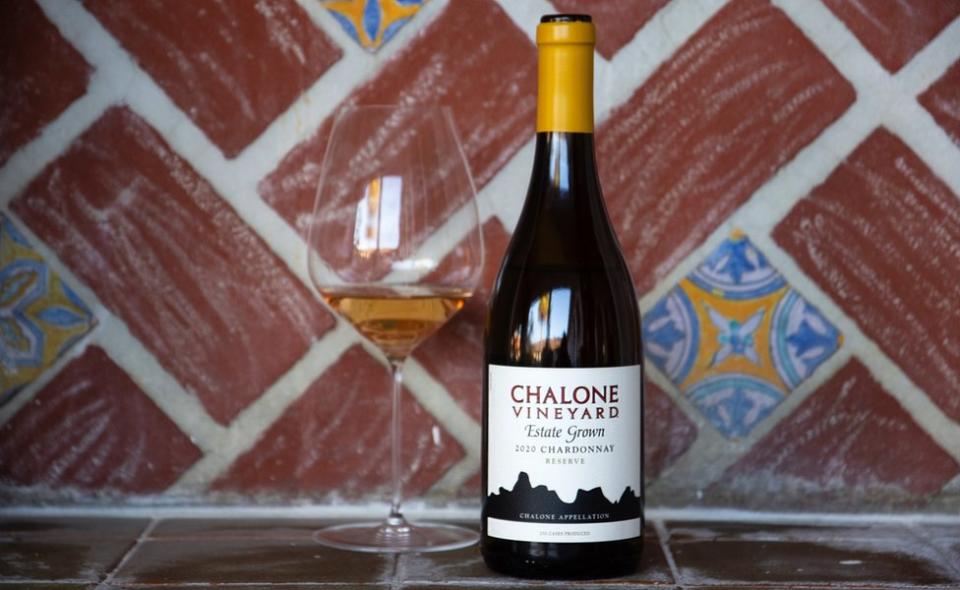'AI helps me to make wine for younger drinkers'

Kara Maraden is in charge of rather a lot of vineyards.
The director of viticulture at large US wine firm Foley Family Farms, she is responsible for more than 5,200 acres (2,000 hectares) of vines, scattered across 1,000 miles of California and Oregon.
She obviously cannot be everywhere at once, but thanks to AI technology, Ms Maraden can remotely check on the water requirements of individual vineyards from her laptop.
"I can go online and see what irrigations are needed down in Santa Barbara, 300 miles away," says Mr Maraden, who is based in Napa, north west of San Francisco.
While judging the water requirements of the vines would previously have been done by human judgement and calculation, Foley now uses sensors made by Tule Technologies, a California-based irrigation company.
The sensors, which look like mini weather stations, are placed across the vineyards. They measure moisture levels, temperatures, wind speeds, and other environmental variables.
All this data is then fed into Tule's AI software system, which has been trained to calculate how much moisture will evaporate from both the soil and the vines under different weather conditions. The AI then determines how much irrigation the vines need and when, and informs the vineyard managers via an app notification.
"We're always boots on the ground," adds Ms Maraden. "But the data helps us make informed decisions based on science, as opposed to just feelings. Feelings aren't bad, but we like to use data."

Foley Family Farms, together with its similarly named sister firm Foley Family Wines, produce US wines under 23 different brands. Ms Maraden says that the AI irrigation sensors "have improved grape quality and consistency".
Tom Shapland, chief executive of Tule, says that another benefit of the sensors is that they can help overcome labour shortages. "The AI provides a watchful eye in the vineyard 24/7."
Tule also makes an AI-powered app called Tule Vision, which can determine the thirstiness of vines after the human user records a few minutes' video of them. The AI was trained with hundreds of images of vines under varying water needs.
Other providers of AI-powered vineyard monitoring equipment include US tech giant Cisco, and smaller firms Ceres Imaging and Bloomfield AI.

Read more stories on artificial intelligence

Once grapes for winemaking are harvested, they are taken into the winery for fermentation. Here too, AI is now getting involved.
California-based tech firm Tastry makes an AI-powered app that helps winemakers make wine that a large number of consumers will like. The software does this by analysing a wine's chemical makeup, and quickly comparing it to a database of the taste preferences of 248 million US wine drinkers.
Tastry tests for everything from a wine's sugar levels, to acidity and tannins. The latter are bitter and astringent compounds that come from grape skins, seeds and stems.
The idea is that Tastry can help winemakers better blend final wines from numerous base wines, varying the percentage of each until a popular taste profile is achieved.
Alexandre Remy, managing partner and winemaker at Atlas Wine Company, a California-based wine brand, describes Tastry as his "GPS system".
"If I want to create my red blend, I choose from 10 different vineyards," says Mr Remy. "This is where AI really shines. It helps me determine my goal, whether I want to appeal to a younger crowd, or perhaps a crowd that prefers a competitor's wine.
"I can input my parameters into the system, and it will offer blend suggestions based on that."

Monika Christmann is a professor of enology - the science of winemaking - at Hochschule Geisenheim University in Germany. She says that wineries with big volumes, and which need consistency year after year, might find AI particularly useful.
Yet she also cautions that the interaction between different wine components is difficult to predict, and not yet fully understood by AI.
For wine traditionalists, the use of AI in winemaking, be it in the vineyard or the winery, is an anathema. They argue that it destroys the artisanry that can make wine so special.
"No algorithm can truly understand the complex interplay between climate, soil, and grape varieties that gives wine its subtlety and character," says Jonathan Kleeman, executive head sommelier at UK restaurant business Tom Sellers Story Group.
"Nor can it appreciate the aesthetics of balance, structure and aroma that distinguish an exceptional vintage. Wine speak of minerality, acidity or fruitiness is meaningless to a machine. True vintners trust their palate, not [computer] processors."

Tom Ashworth, chief executive of wine retailer Yapp Brothers, says that if he was making wine he wouldn't use AI.
"To what extent the winemaker allows AI to take over decision-making - replacing hundreds of years of experience - I guess depends on the risk-appetite of the domaine, and the accuracy of the AI itself.
"Currently, I wouldn't handover the decision making on key processes in vinification to AI, any more than I would let AI run customer services un-supervised."
Back in California, Ms Maraden counters that AI is about helping human winemakers, and not replacing them. "We are boots on the ground, we ourselves are always in the vineyard," she says.
"What AI is really about [in wine] is making more informed decisions based on science."

